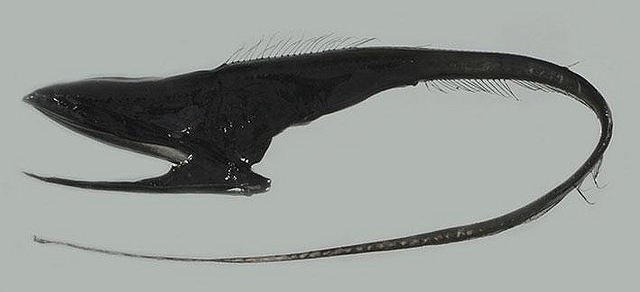Written by Jonathan Wojcik

The Saccopharyngiformes (literally "sack throats") are sometimes known as "pelican eels," "umbrellamouth gulpers" or more commonly "gulper eels," though not technically true eels at all. Their thin, flexible jaws can flare open just like an umbrella to engulf even relatively massive prey, and like the anglers, their stomachs can stretch several times their original size. It's an excellent survival strategy: a low body mass requires less nourishment, and an expandable one can store larger amounts for longer periods of digestion. Gulpers are predators making the most out of a minimum.
In some species, the tip of the tail actually ends in a tiny light theorized to serve as a lure.
These gulpers have been observed floating in place, dangling their tail-lights just inside their gaping
maws.

Another glutton of the gloom is the unrelated Black Swallower of the genus Chiasmodon, known
to engulf fish more than four times its length. In some cases, the swallower is unable to digest prey
before it begins to decompose, and the resulting gases send the tiny terror floating fatally
to the sea's surface. It is thought that a swallower first bites prey on the tail, then chomps its
way up the victim's body, swallowing it inch by inch.


|

|

|
|
|
|
|